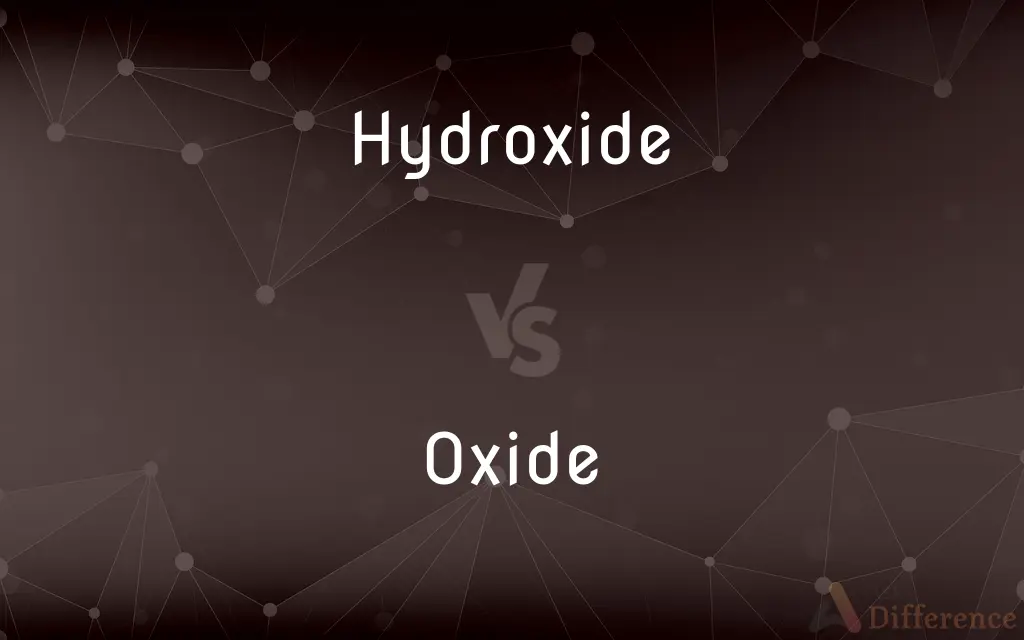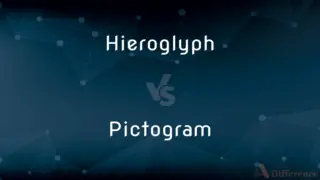Hydroxide vs. Oxide — What's the Difference?

Difference Between Hydroxide and Oxide
ADVERTISEMENT
Compare with Definitions
Hydroxide
Hydroxide is a diatomic anion with chemical formula OH−. It consists of an oxygen and hydrogen atom held together by a single covalent bond, and carries a negative electric charge.
Oxide
An oxide () is a chemical compound that contains at least one oxygen atom and one other element in its chemical formula. "Oxide" itself is the dianion of oxygen, an O2– (molecular) ion.
Hydroxide
A chemical compound, especially an ionic compound, containing a hydroxyl group.
Oxide
A binary compound of oxygen with another element or group
Nitrogen oxide
Hydroxide
(chemistry) An univalent anion (OH-) based on the hydroxyl functional group.
ADVERTISEMENT
Oxide
Divalent anionic oxygen, or a compound of oxygen, especially a binary compound of oxygen with a more electropositive element.
Hydroxide
Any substance containing such an anion.
Oxide
(chemistry) A binary chemical compound of oxygen with another chemical element. Category:en:Oxygen
Hydroxide
A hydrate; a substance containing hydrogen and oxygen, made by combining water with an oxide, and yielding water by elimination. The hydroxides are regarded as compounds of hydroxyl, united usually with basic element or radical; as, calcium hydroxide ethyl hydroxide.
Oxide
A binary compound of oxygen with an atom or radical, or a compound which is regarded as binary; as, iron oxide, ethyl oxide, nitrogen oxide, etc.
Hydroxide
A compound of an oxide with water
Oxide
Any compound of oxygen with another element or a radical
Hydroxide
A chemical compound containing the hydroxyl group
Share Your Discovery

Previous Comparison
Practice vs. Method
Next Comparison
Hieroglyph vs. Pictogram













































